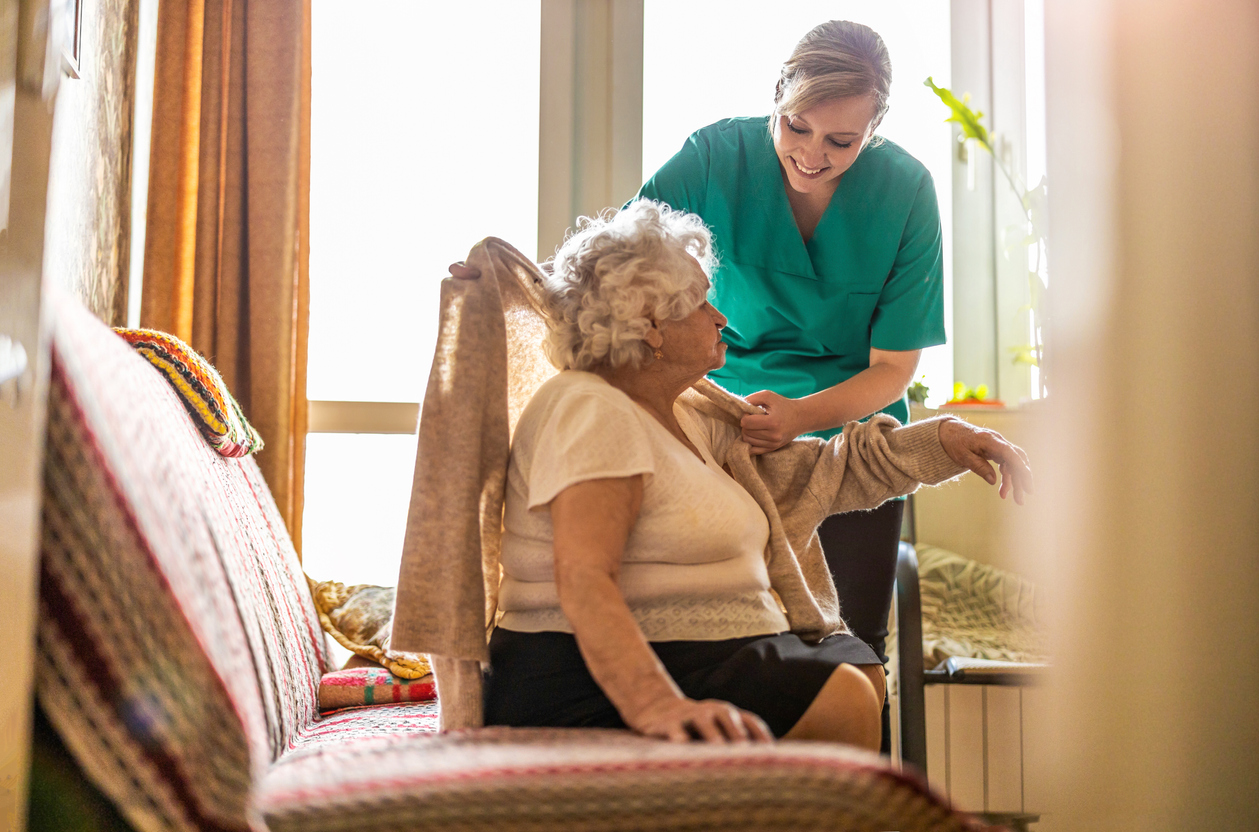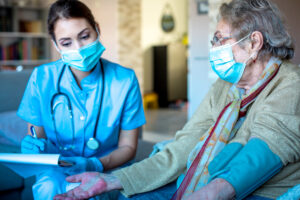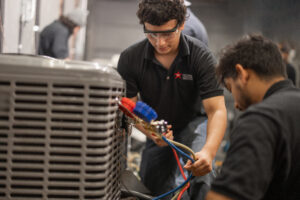What is a Home Health Aide?
A home health aide or personal care aide is somebody who comes into an older or disabled person’s home and helps them cope with personal care. Home health aides are not nurses or medical staff, but are considered health care paraprofessionals and have to be licensed and meet state-level requirements.
People who turn 65 at the moment have an almost 70 percent chance of needing some kind of care support, and not all of them have family able to do it. Moving into a retirement community that can provide that care is expensive, and most people would also prefer to stay in their homes as long as possible.
Home health aides can help them do so and keep that independence while making sure that they can handle everything and safely cope with their lives.
What are Their Duties?
A home health aide may perform a variety of duties depending on the needs of their clients. This might include:
- Assisting with bathing and dressing
- Cooking meals and sometimes assisting with eating
- Assisting with toileting
- Light housework, cleaning, and laundry
- Driving to medical appointments, shopping, leisure activities, etc., or making other transportation arrangements
- Monitoring vital signs such as blood pressure and pulse
- Keeping an eye on the client\’s physical and mental condition
- Handle emergencies
- Helping the client stay organized, keep up with their schedule, etc.
- Provide companionship
- Monitor and potentially give medication
- Do very basic medical care such as changing bandages, helping with prosthetics, etc.
Note that personal care aides generally do not do any medical actions including helping with medication. However, some work with disabled people to teach them how to care for themselves better, such as teaching somebody with developmental disabilities how to cook.
Home health aides are usually supervised by nurses and may also coordinate with therapists. They generally report to the client’s case manager or supervisor. Most work in the client’s own home, but some are hired by group homes.
What are the Requirements to Become a Home Health Aide in Texas?
All states have requirements for home health aides to protect their vulnerable clients. Texas is no exception, although it has lighter rules than some. Texas has no registry, certification, or state exam, but does have training requirements.
That training includes the following:
- 16 hours of classroom experience before working directly with clients.
- 16 hours of clinical experience in a home, hospital, nursing home, or laboratory.
- An assessment that shows you can read and write English and follow directions in that language. Fluency in English is thus vital, although fluency in Spanish can sometimes help you find work.
A licensed vocational nurse can provide classroom training as long as an RN is supervising. They may also supervise candidates during the clinical experience.
Again, there is no state exam or license. Instead, Texas protects clients by requiring that companies that provide these services go through a licensing system.
What Sort of Experience and Attributes Do Home Health Aides Need?
First of all, becoming a home health aide requires a certain personality. You need to have patience and compassion, and it helps to be a little bit extroverted and enjoy spending time with people. Home health aides are often called upon to provide companionship for an elderly person when their family caregivers are at work or school. They also have to meet and talk with the family and may have to deal with grandchildren.
What You Should Expect
Being a good cook is also extremely helpful. Home health aides have to make tasty meals that fit within any dietary requirements or limitations as well as their client’s preferences. It also helps to enjoy cooking.
You need to be meticulous and highly organized so you can keep track of the schedule, medications, etc., of potentially two or three clients. Often elderly clients are having cognitive and memory issues and need you to be their external memory. Technological tools such as apps can help. Clients may also benefit from thrifting or couponing apps to help keep their grocery bills down.
Also, you need to not have any issues with potentially working with a client’s toilet, including seeing them naked and touching them. You have to be able to deal with this without making you or them uncomfortable. A sense of humor really helps.
You also need a high level of resilience as you may be caring for people who are getting closer to the end of their lives, as well as the ability to talk to families and clients about the hard decision of moving into a nursing home.
Last, but not least, you need to be punctual, reliable, and responsibly communicate if you are unable to work because you are sick. It is important that home health aides do not work when they have contagious illnesses as they can cause significant harm to their clients. You must make sure that your agency is notified so they can send a substitute.
What is the Difference Between a Home Health Aide and a Nurse Aide?
Home health aides are sometimes confused with nurse aides or nursing assistants. In fact, there are some key differences.
Home health aides tend to provide more basic assistance with activities of daily living. For example, they may help their clients write their shopping lists.
Nursing aides do similar work, albeit often in hospitals, nursing homes, and other high-paced environments. However, they also work in a client’s home. They have a higher degree of training in basic medical tasks such as taking vitals, observing symptoms, and talking about health issues. A home health aide may help monitor a client’s condition, but they will not discuss it with them and do not have the training to talk to a physician about adjusting things.
Start Your Training to Become a Nurse Aide
While we do not provide a home health aide course, if you are looking to get fast, hands-on training to become a nurse aide, Southern Career Institute (SCI) is the place to be. Our courses are well-designed and include all of the skills you need to pursue this career path.












